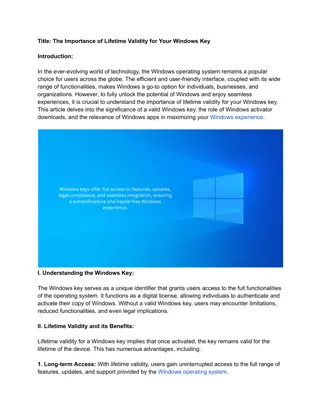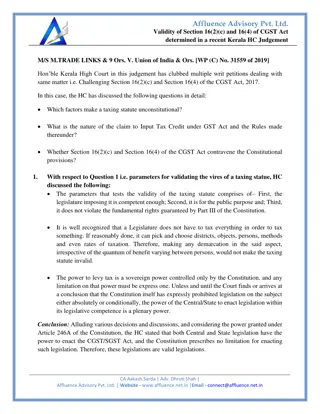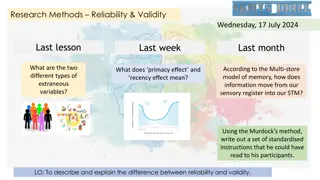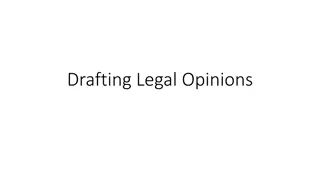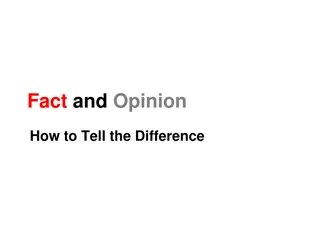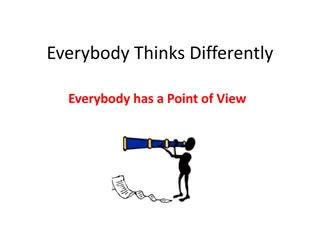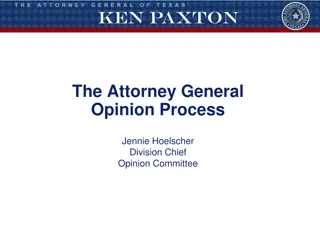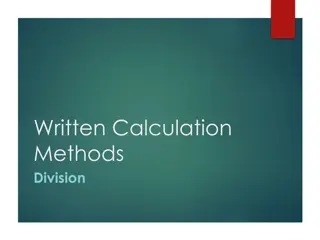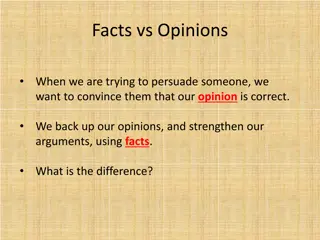Understanding Generalization: Facts, Opinions, and Validity
Exploring the concept of generalization, this content distinguishes between facts, opinions, and valid generalizations. It emphasizes how generalizations are broad statements based on information and experiences, while facts can be proven true and opinions are belief-based. Key words and examples are provided to illustrate the differences, helping readers grasp the nuances of valid versus faulty generalizations.
Download Presentation

Please find below an Image/Link to download the presentation.
The content on the website is provided AS IS for your information and personal use only. It may not be sold, licensed, or shared on other websites without obtaining consent from the author. Download presentation by click this link. If you encounter any issues during the download, it is possible that the publisher has removed the file from their server.
E N D
Presentation Transcript
Generalization Ms. Morgan
Review/ Introduction What is generalization? How are facts, opinions, and generalizations different?
What is generalization? A generalization is a broad statement about a subject based on information, observations, and experiences.
What is a fact? Facts are statements that can be proven true. Facts and valid generalizations are not the same thing!
What is an opinion? Opinions are statements that express beliefs that cannot be proven. Opinions and faulty generalizations are not the same thing!
Key Words Some Many Most Few Sometimes Often Rarely Might Probably Typically
Fact, opinion, or Generalization? George Washington was the first president. August 9 is Ms. Morgan s birthday. Most students in here are paying attention. All students got breakfast this morning. Mrs. Short is a sixth grade teacher. Monkeys enjoy bananas.
Valid or Faulty Everyone that lives in Alabama watched football. Most people enjoy ice cream or cake. A lot of students did really well on the reading test. No one understands poetry. Almost all teachers have their summers off.





